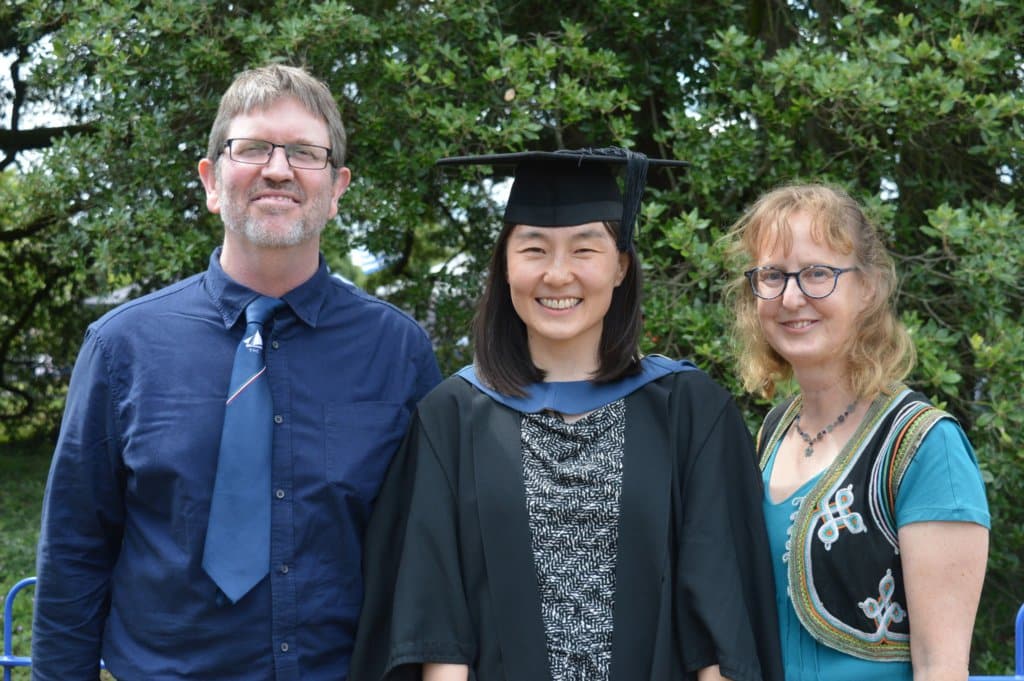
The field of agricultural economics requires graduates with a dynamic outlook. Given the rapid pace of innovation, technological advancements, and labor shortages, companies are actively seeking solutions. This means, there will be a growing demand in the job market for graduates with master’s degrees and high-level skills.
As an applied field, agricultural economics covers many topics beyond those stereotypically thought of as pertaining to agriculture. These may include finance and risk management, environmental and natural resource economics, game theory, or public policy analysis to name a few.
David Edwards, former Vice President-International Risk Management, American Express, agrees. “The combination of quantitative training and applied work makes agricultural economics graduates an extremely well-prepared source of employees for private industry. That’s why American Express has hired over 80 agricultural economists since 1990,” he once shared.
If you’re interested in enhancing your qualifications and aiming for better career outcomes, these three universities could be the place to be for endless opportunities:

The Food and Resource Economics Department focuses on teaching, research, and extension related to the food and agricultural systems in Florida. Photo Credit: University of Florida/Brianne Lehan
University of Florida
The University of Florida (UF), consistently ranked among the top five public universities in the US by US News & World Report for two consecutive years, is where intellect, ingenuity, and imagination shape minds and forge futures for the better. Two programs by the Food and Resource Economics Department (FRED) exemplify this best.
The Master of Agribusiness (MAB) is a 100% online and asynchronous program that breaks geographical barriers, allowing students to access a high-quality education from anywhere in the world and. This flexibility to fit life and career commitments around your graduate degree is paired with opportunities to meet classmates, instructors, and industry leaders in person once a semester. Students from all degrees are encouraged to join to add agribusiness and economics skills to their experiences— a feature that enriches discussions and projects while giving MAB students the best of many worlds.
The MS in Food and Resource Economics program equips students with the skills and knowledge needed for careers in industry, government, and NGOs. It’s ideal for those aspiring to earn a PhD too. You not only get to learn from distinguished faculty members but also have the chance to engage in impactful research in areas such as consumer behavioural economics, marine economics, environmental and natural resource economics, and international development. Funding is available on a competitive basis and graduates have very high chances of placement.
Whichever program you choose, you’ll be part of the “Gator” nation. Click here to learn more about the Food and Resource Economics Department.
Wageningen University

The strength of Wageningen University & Research lies in its ability to join the forces of specialised research institutes and Wageningen University. Source: Wageningen University/Facebook
Dubbed one of the world’s most sustainable institutions, Wageningen University nurtures future agricultural economics experts through invaluable insights gained from research in biodiversity, climate, and bio-based economies. Here, hands-on coursework incorporated into the programs allows students to gain the necessary real-world experience in their chosen profession while still at university.
Take the MSc Economics of Sustainability, for example. A hands-on consultancy course, an internship, and a major thesis train students to become quantitative economists who can analyse problems in food systems, natural resources, and the living environment, as well as provide economic solutions that promote transitions to a sustainable future.
In the Master’s Resilient Farming and Food Systems, students can explore sustainable food production from both natural and social perspectives. Action learning and research projects help to put theory into practice. Chair groups at Wageningen University are valuable in complementing what is taught within the classroom. The Agricultural Economics and Rural Policy Group — which falls within the economics section of the Social Sciences chair group — provides training to students that addresses research questions in economics and policies related to bioeconomy, rural and regional development, institutional and organizational aspects, and quantitative economics. In turn, students are encouraged to develop their own ideas, which apply theoretical methods and quantitative tools.
University of Reading

Founded in 1892, the School of Agriculture, Policy and Development has been contributing to teaching and research in agriculture and related fields for more than a century. Source: School of Agriculture, Policy and Development/Facebook
Students thrive in the right environment with the proper support. At the School of Agriculture, Policy and Development, aspiring agricultural economics professionals learn from great teachers and pursue practical degrees. Each pathway offers students a unique opportunity to gain specialised knowledge and skills as they work towards issues that are aligned with the 2030 Agenda for Sustainable Development, including sustainable food production, biodiversity conservation, animal welfare, and many more.
Founded in 1892, the school has been contributing to teaching and research in agriculture and related fields for more than a century. Its research expertise is woven into its teaching, providing students with the knowledge and skills to succeed in their chosen career or further study.
Look at the MSc Agriculture Economics, for example. It is a top pick for agricultural economics enthusiasts for good reasons. Apart from being able to specialise in an area within agricultural development economics, students can choose from a diverse range of modules that aim to give them the knowledge and skills to make an impact and be part of global change.
Learning takes place through a variety of learning methods, such as seminars, lectures, tutorials, debates, discussions, and even field trips. During the summer term, there is the option to undertake an optional placement.
The best part? As an MSc Agricultural Economics student, you’ll be a member of the school’s Graduate Institute of International Development, Agriculture and Economics (GIIDAE). They attract a diverse community of master’s students from more than 40 countries. At its core, GIIDAE holds diversity, equality and high-quality teaching and learning as core values in its approach to education.
*Some of the institutions featured in this article are commercial partners of Study International










